Public Space, Private Life – Interview with Azadeh Ganjeh with Sepehr Sharifzadeh
If the safety of the individual depends on the health of the collective, how does public space (and performance in it) contribute to a cohesive society? Producer Sepehr Sharifzadeh speaks with the Iranian playwright and director Azadeh Ganjeh, whose work in site-specific and immersive theatre sees public space as a collective extension of private life.
The interview was a part of the FRESH STREET#4 publication coordinated by Circostrada and edited by John Ellingsworth, in relation to the FRESH#4 - International Seminar for the Development of Street Arts co-organised in November 2020 by Circostrada, ARTCENA and FNAS in Turin, Italy. (Re)discover it on our blog now!
How did you enter this realm of theatre in public space?
I began my education in civil engineering but I was working in theatre even then, while I was studying. There was a general belief that you couldn’t live off of art, so on the recommendation of my family I studied civil engineering to have another source of revenue that would allow me to work in art freely, without money as an obstacle or influence. As for public space, I always liked to wander the city. I love the city and I love to be free there — something which, in many ways, is not always possible. But then I discovered that it’s possible to perform in the street. Theatre led me to work in urban spaces because it was important for me that theatre reach everyone.
In the early 2000s, performing outdoors was not a common thing to do in Iran. We did have some street theatre, but mainly within the off programmes of larger festivals, and the very spirit of street theatre — political voices — had been taken away from it, making it more or less a pedagogic theatre. We lacked polyphony in our street theatre. By ‘we’ I mean different parts, or classes, of society. We were able to go to the theatre and there we’d feel somewhat intellectual, feel that we were connected, that we were a collective, but it was a collective that wasn’t really growing or bringing in new members.
So I thought both that we had to reach other people, and that we shouldn’t limit ourselves to being inside theatres. Going to the street and performing in public places was also very important for me because my work was connected to social issues. I wanted to talk about what is current, what is real, what is happening to everyone.
I also knew that I needed to be in dialogue with people on the street. Not in a one-way communication, where people just receive your message, but through performance that lets the public cooperate and interact. Then you, the artist, can learn something, and the public in turn can give something to the event. I found the idea of Forum Theatre was very well suited to that. That’s why I began my work in community theatre with Forum Theatre. I tried to approach public space very honestly, not trying to manipulate it but being very direct. It’s theatre and it needs your collaboration. For me, it was important that we found our voice, and those other participants in different regions of the city, and from across society, found theirs.
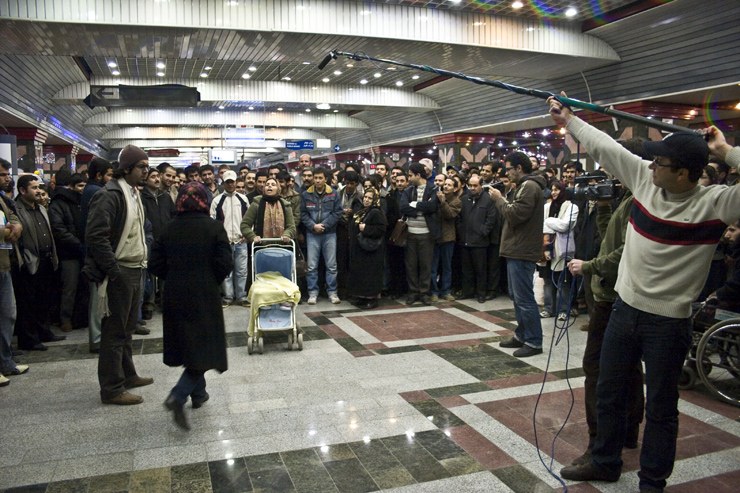
How do you ordinarily find your ideas? Or how do they come to you as a city wanderer?
It always begins with a dilemma, with something that I think we have to talk about. I would say that I mainly work with forbidden memories — events in our sociopolitical history which, for many reasons, are not being discussed. These are collective memories held by many, and yet talking about them, and reminding people of them, is forbidden. By working with these forbidden memories I try to make a collective memory for the city. I feel that we are distracted, that we are shut out from society. We are limited and we’re also limiting ourselves. I also think about how I should reach people, how they can participate, how they can relate through theatre to an issue. And then I think about the form. For example, when I wanted to talk about the issue of polygamy in Iran — as a law had been approved in parliament to say that a man could marry another woman without any consent from his wife — I created the piece Always passes by you… I can’t know what other people think, so I decided to create an event where people could come and talk freely, to share their personal voices and ideas in regard to those laws, and to share their experiences through the two formats of Augusto Boal’s Forum Theatre and Invisible Theatre. So my way of working is that I first think about an issue, and then find a way to share around it. By thinking through this, and about what kind of collaboration it needs, I find the form, the aesthetic. Is it narrative? Is it dramatic? Is it post-dramatic? We Iranians love to talk to each other, we love to share. For example, we have this system of shared taxis — private spaces that are also public. They are a very important part of our lives, and so I thought this was a place where we could meet the various parts of society, meet one another, and I decided to create a show there. That became Un-Permitted Whispers.
What are the challenges of making, and getting official permission for, theatre in public space in Iran?
I presented my first piece, Always passes by you… at the Women’s Festival of Theatre in Iran. Even though it was a women’s festival, the organisers were surprised having never met a woman leading and managing a show in unconventional spaces. They were saying things like ‘we never had a woman perform in the street before — what will happen?’ So they had their doubts, but they gave me the permit. For other shows, it has been more difficult. In Iran, public space belongs to many organisations, not to the people. Some have a face: you can go see them, debate, and ask for permission. Others you don’t have access to, but then you meet them when you are actually in the place. So the challenges are not only before the performance but actually during it. I have funny memories and sad memories, but in the end it worked, and I believe we were the first to start this kind of theatre after the revolution in 1979. It was also not easy as a woman. I remember once the authorities told me they couldn’t hold a woman as the responsible person for a performance in the street, and that a man would have to be named, or that we would have to share the credit as co-directors. I didn’t accept the co-director option, but in the end one of the actors took the official responsibility.
What is public space for you?
Public space is wherever the public is, wherever there are different voices. It is a place where there is diversity, even if it is sometimes suppressed and there are voices that go unheard: a common space to share with one another in spite of our different lifestyles. There you can find dialogue, insight, shared discourse, as well as memories that no one wants to be documented or archived, the forbidden memories which are condemned to be forgotten and for which I want to make a platform to keep them alive. Public space is an important extension of our private life, although as Iranians there’s a big contradiction between our private and public lives. It’s important for me to find a compromise between all these paradoxes in the public space, and I believe theatre can help to reunify us with each other within public space.
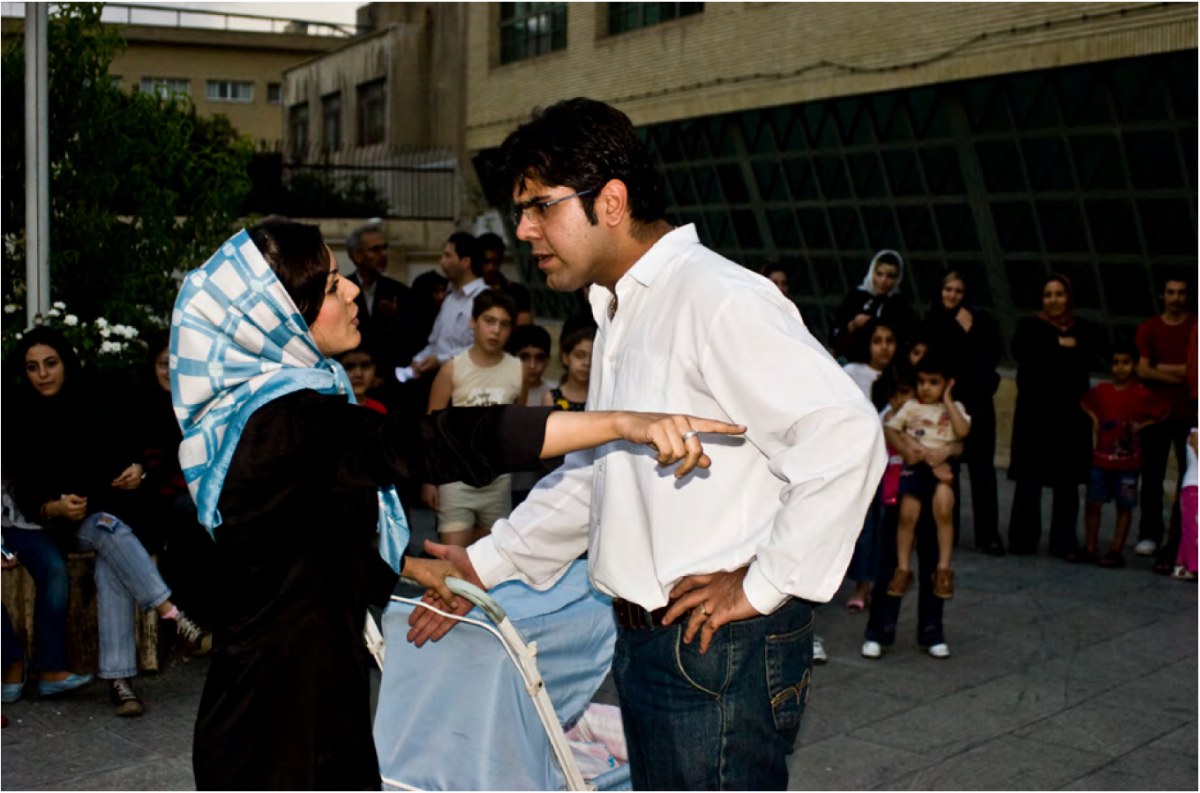
Does this also relate to collective or societal health? What you do helps people to find common relations and to regain memories. Could we say that theatre in public space can improve mental health?
I think it can, and it’s very important when you find your voice. You feel your stories are being listened to, so you feel you are a person — a real person, not a shadow or second-class citizen. Then you feel much better, you are more active, and this activation helps you to become a better citizen, to find hope. It’s a very important part of being healthy. It’s not a therapy session of course, but it gives you the chance to be the subject, so it gives you power.
It reminds me of what Gertrude Stein said about Picasso and the connection of French and German artists with nature, while in southern countries like Spain and Italy the connection is more within a social context.
Yes, I believe it’s something in our culture to identify ourselves with people, with others around us: with our family, our history, our family history. We are very connected with our roots, our grandparents, everything that makes our identity.

Despite the challenges, is public space part of Iranian cultural identity?
Yes, it is. What has happened in the past is that theatre in public space has been restricted to special sites and events. It is not everywhere, nor open to any subject, and yet we live in public space and act in it. So what I want to do is to destroy restrictions and open new possibilities. During Covid-19, people have not been able to use public space as before and digital platforms have been a very important extension of public space for us Iranians. Even before the pandemic they were very important. It’s a very real world for me — an extension of public space which happens at home. We open a laptop and we are inside it; we are known and acknowledged, can talk, act, perform, and be seen.
And we let the outside in. I remember during your talk at Re-connect festival you pointed out how digital platforms tend to shift to a kind of Forum theatre or immersive theatre.
I really like immersive theatre and believe that it’s meant for public space — or that when it happens it makes public space. In digital space, it’s a challenge, but it’s still possible if we believe that being present digitally is real presence. If we limit presence to only the body, then it limits us.
Azadeh Ganjeh was interviewed by Sepehr Sharifzadeh in December 2020.
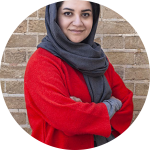
Azadeh Ganjeh (Iran) was born in 1983 in Tehran. She is a playright, performance artist and theatre director. She is also an Assistant Professor at the Faculty of Performing Arts, Teheran University. Her special interest in theater for development, Public Sphere and Social Theater lead to achieving national and international prizes for her site- specific and immersive theater Productions. Her research interest is focused on cultural mobility theory, theatre for development and democracy, activism in art and new media art. After receiving her BA in Civil Engineering, she earned a Theater directing M.A degree from Tehran Art University and graduated as a Dr. in philosophy from Bern University. Since then, in addition to her carrier in academy, she has taught directing workshops with concentration on site-specific theater, immersive theater, dramaturgy of real and performance art.
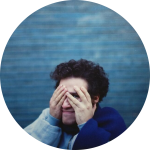
Sepehr is a Brussels-based creative producer, agent, and curator. He co-founded the first international theatre agency in Iran in 2012, aiming to facilitate cross-cultural relations between Iranian theatre and the International performing arts scene. Since then he has worked with several international festivals and organizations spanning BOZAR, The Festival Academy, IETM, and Tehran contemporary music festival. He’s passionate about festivals, anthropology, community building, networking, communication, and languages. After the pandemic, he initiated several independent projects including the PADA (Producers, Agents, Distributors Alliance; A global network to connect performing arts distributors to connect, gather, and collaborate in a sustainable way). Sepehr is a member of the IETM advisory committee since 2022.



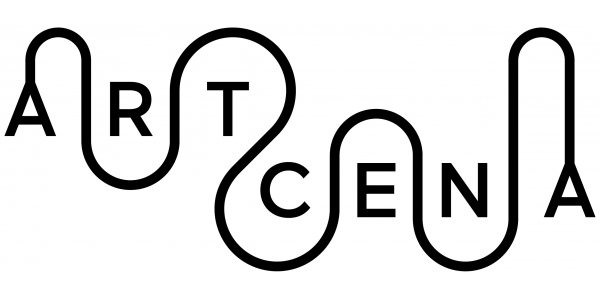

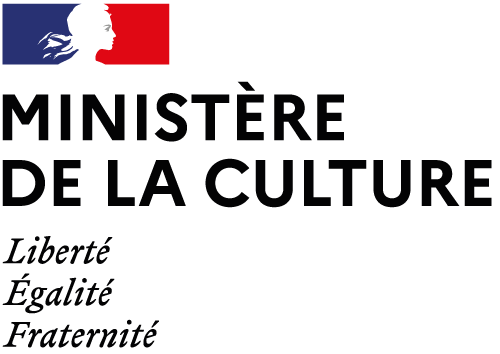
write us: infocircostrada@artcena.fr